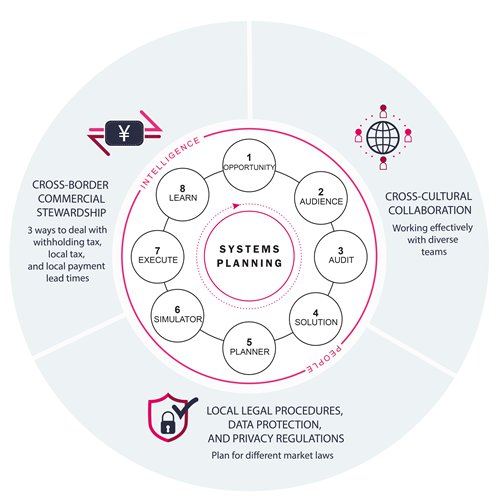HOME >> BUSINESS,METRO SHANGHAI
MediaCom China hosts their second China Growth Summit in Shanghai
Source:Global Times Published: 2019/7/18 12:08:40
Unlocking growth

Photo: Courtesy of MediaCom China
Under the Belt and Road Initiative more Chinese brands have accelerated to go overseas. International consumers' impressions of "Made in China" have shifted significantly, according to a report from one of the world's leading media agencies, MediaCom China.
"2019 and 2020 are the most important years for Chinese brands going global. More Chinese brands seek to fulfill their goal growth in global markets. The current fast-growing markets present unique opportunities for Chinese brands to grow globally," Iris Chin, MediaCom China's managing partner told the Global Times at the second China Growth Summit, which was hosted by MediaCom China earlier this month in Shanghai.
Under the theme of "Accelerating Growth in China - New Consumers New Channels" the summit brought together over 100 top advertisers, senior market practitioners and industry professionals across all WPP divisions to share the new approaches and strategies to drive growth in China, and to discuss their real-life business challenges.
"The expectation of China to deliver growth continues, in real terms and relative to other markets. In the face of some growing macroeconomic head winds, unlocking growth becomes a bigger challenge for businesses. At the Accelerating Growth Summit we have shared a range of evidence-based strategies that will enable our clients to achieve growth, tap into new consumers, new channels, and deliver a sustainable competitive advantage," Rupert McPetrie, CEO of MediaCom China, said at the summit.

Rupert McPetrie, CEO of MediaCom China Photo: Courtesy of MediaCom China
The shift of 'Made in China' notion
China's role in maintaining economic momentum and the Belt and Road Initiative has provided the springboard for Chinese brands to go global.
"These physical routes to market for Chinese brands have become much more efficient, which is highly beneficial for Chinese brands," said Chin, adding that the fully equipped infrastructure, payment, shipment, and internet has made it easier and less costly for Chinese brands to expand into new markets and, ultimately, go global.
Besides the convenience brought by infrastructure projects, China's technological strength is also now perceived with the outstanding performance of internet-based companies such as Alibaba, Huawei, and Xiaomi.
"The international community has been deeply impressed by China's national image of having a strong capability of technological innovation," Chin said.
According to MediaCom research, DJI, the brand of choice for drone fans globally, which is headquartered in Shenzhen, South China's Guangdong Province, represents 70 percent of worldwide drone sales. Huawei has already become the third largest brand in the sector with a 9.4 percent market share worldwide. Youzu and Elex are both young Chinese gaming companies but continue to gain more fans and more revenue in foreign markets.
In the e-commerce field, a most noticeable leap is Alibaba's global expansion within just two years. Beginning their global expansion in 2017, Alibaba is growing overseas markets exponentially with 230 global countries and regions participating in the 11.11 Global Shopping Festival last year.
"As the media agency for Alibaba outbound business, the MediaCom China HQ team worked closely with eight local offices and succeeded in launching Tmall's global campaign across five continents within six weeks. The entire 2018 Double 11 campaign was running across five continents in real time," Chin said.
According to her, Chinese brands are innovative and unique which make the brands flow across borders successfully.
"Besides good products, those brands succeed in expanding overseas markets by being stronger and distinctive [Difference] and by being considerate of the times [Salient] and filling needs in a relevant way [Meaningfulness]," she added.

Iris Chin, managing partner of MediaCom China Photo: Courtesy of MediaCom China
Think globally, act locally
Building greater overseas awareness of Chinese brands is critical. MediaCom has identified four key challenges and solutions from a media perspective.
How to engage and plan a campaign well according to the local market insights, working and communicating efficiently in different cultures, being aware of legal, data, and consumer privacy regulations, and minimizing taxes while maximizing the media budget to optimize brand exposure are all crucial for the development of outbound brands.
"Localization strategy is very critical when Chinese brands go global. We must think globally and act locally to grow through outbound marketing," Chin said.
To address these challenges and to drive Chinese brands' global business growth, MediaCom has come up with unique solutions for China's outbound marketing. "System Export," which is based on MediaCom's systems planning solution with a bottom-up focus to leverage local market insights, media planning and buying expertise, is continuously optimized through testing and learning.
"The scale and resources through our extensive network presence across more than 125 offices globally is coupled with the presence of GroupM knowledge and data intelligence teams across countries. MediaCom's China hub's understanding of Chinese brands and overseas local offices' strong local resources and knowledge of local markets work as one to drive growth for Chinese brands globally," Chin said.
Accelerating growth in the complex media environment in China, harnessing the growth in the Greater Bay Area, and marketing opportunities in China's growing late night economy were also discussed in depth at the summit.
Global Times

Photo: Courtesy of MediaCom China
Posted in: COMPANIES,METRO SHANGHAI